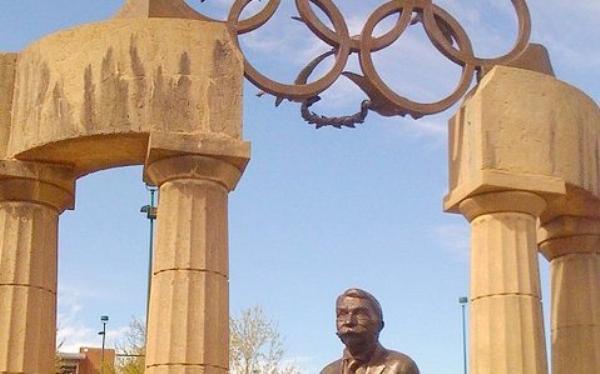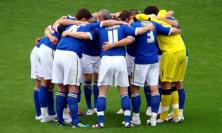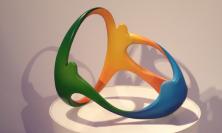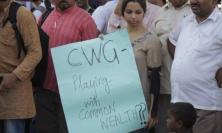Over the next few weeks we will hear a lot about the Olympic Spirit, but rather less about the man responsible for the growth of ‘Olympism’ in the modern age. Tim Byron SJ explores the roots of Baron Pierre de Coubertin’s thinking in his Catholic educational experience, and tracks the rise of the Olympic movement alongside de Coubertin’s relationship with the Catholic Church.
The founder of the International Olympic Committee, Baron Pierre de Coubertin (1863-1937) dedicated his life to promoting the values of the ancient Olympiad. His fascination with the ideals of the Greeks originated during his Catholic upbringing amid an atmosphere of uncertainty and nostalgia for the French aristocracy in the late nineteenth century, following defeat in the Franco-Prussian War and the establishment of the Third Republic. I want to explore the effects of his adolescence on his career. Was the Olympic movement an attempt by its founder to recover some of the values of nobility that had been lost? His initially close relationship with the Church became increasingly strained: how did this shape his vision? And finally, what might he think today as London gets ready to become the first city to have hosted the Modern Olympiad for the third time?
The young Baron
De Coubertin's father was a staunch royalist and an accomplished painter who focused on Catholic and Classical works, perhaps pining for another age. His mother, overly pious, often encouraged the young Pierre to ‘play Mass’ and dearly hoped he would enter a monastery or at least be ordained a priest. Their family life was paradigmatic of the stifling co-dependency that existed between a certain type of Catholicism and the aristocracy during a period in French history that was thick with enemies for both the Church and the privileged elite. However, the de Coubertin family was by no means a haven of Catholic orthodoxy, with a grandfather who was a freemason and a great uncle who was a priest with liberal and socialist tendencies. The latter had been outlawed by the family and when the young Pierre wished to tend to his grave he was told this would be useless as his eternal damnation was certain. With such 'dangerous' influences knocking at the door it was decided that it would be better for the boy’s spiritual health if he were sent to the Jesuits, who would surely heal any tendency towards unorthodox opinions.
His time at Saint Ignatius College, Rue de Madrid, in Paris certainly had an impact. The provision of a gymnasium and six playgrounds made an impression on the young student. However, it seems that his humanities teacher, Father Jules Carron, had the strongest influence on him. An enthusiast for the world of antiquity, Father Carron spoke with love of ancient Greece, the country of philosophers and poets, where discordant factions and provinces where united in harmony by the call of Olympia. This must have sounded very attractive to the young baron who longed for a clear sense of his place in the world. A solid classical education with an extensive knowledge of the history of Greece and Rome was thus received gratefully by de Coubertin from Father Carron. Like many teachers, his was a hidden and heroic struggle in the anonymity of the classroom to widen the horizons of his young charges and fill their hearts with knowledge and a desire to dream and change the world. It filled the young baron with a fascination for Olympia and a romanticised nostalgia for a place where honour and glory dispelled conflict and uncertainty.
Tour of Britain
De Coubertin was generally impressed by the Jesuit Fathers’ educational skills, piety, persuasion and self-assurance. However, with the honourable exception of his classics master, it is not clear that the Jesuits had any deep or lasting effect on the conflicted young boy. In fact, at a later time he was dismayed by the French Jesuit schools’ indifference to his ideas for educational reform. These ideas were stimulated by a tour of British public schools in 1883, particularly by the meritocracy and competitiveness he experienced there. The first stop was Beaumont, the Jesuit College in Windsor, where he was deeply impressed, especially by a prize given to a swimmer on the occasion of a banquet held by an association of former pupils. De Coubertin thought that here sport extended beyond the childish games of Parisian schools and was valued as more than merely a pastime. He also travelled to Stonyhurst where he was to praise the ‘moral atmosphere’ of the English Jesuit schools. Other stops on his tour included Eton, Harrow and Rugby. It was clear to him that in Britain, sport was permitted as an unbridled contest, forming character and helping the competitors let off steam. This attitude was perhaps attractive to a young man wrestling with doubts about his own identity and purpose. Competition was encouraged, valued and rewarded, and this was clearly expressed in Tom Brown's Schooldays, the novel about Rugby school still basking in the legacy of Thomas Arnold, whose educational ideas de Coubertin studied closely. At Rugby, there existed a vigorous mix of piety and physical health. Inspired by Pauline athletic metaphors, this ‘muscular Christianity’ was credited by de Coubertin as one of the reasons for the successful spread of the British Empire. This was in stark contrast to France, where he attributed the defeat in the Franco-Prussian war to a lack of good physical education for the masses. Wistfully, de Coubertin would return to France hoping that maybe educational reforms based on what he had learnt in England could turn around Gallic fortunes.
Two other events in de Coubertin's visit are worth mentioning. On a visit to the Oratorians and their college in Birmingham, he met Cardinal (now Blessed) John Henry Newman. More importantly, but little commented on, was his stay at the home of Dr William Penny Brookes in Much Wenlock in Shropshire. Brookes, a visionary figure, polymath and social reformer, had begun the Wenlock Olympic Games in 1850 with the aim of the moral, physical and intellectual improvement of the people of the area. Ignored by the British sporting establishment, nevertheless Brookes had successfully set up a National Olympian Association in Liverpool. De Coubertin witnessed the Wenlock Games with all its attendant pageantry and wrote an enthusiastic article about it on his return to France, although he would later, somewhat disingenuously, play down the influence of the Wenlock Olympics on his thinking. One of the Olympic mascots for London 2012 is named Wenlock.
Back in France de Coubertin was faced with an educational system that, in his judgement, was too rigid, where sport was not utilised to its full potential. At this stage, with his horizons limited to educational reform, he was eager to try out new ideas, but he was to get a lukewarm reception from many quarters, including his former school. This lack of interest from the educational establishment[1] prompted de Coubertin to start thinking of a more grandiose scheme, an international athletics congress based on the ideals of ancient Olympia.
Birth of ‘Olympism’
The seminal meeting in Paris of the Olympic Congress in 1894 laid the foundations of the Modern Olympic Games. De Coubertin now saw the potential of his Olympics to instil a sense of national pride and also to promote international co-operation. After the success of the Athens 1896 Olympics and also the succeeding 1900 Games in Paris, de Coubertin wanted to widen its appeal. He found two influential allies in the Vatican who would help him further his vision. The British-born Cardinal Merry del Val was very interested in his ideas and through him de Coubertin met Pope (now Saint) Pius X, whom he claimed gave his blessing to the movement. Pius X, unlike his bookish predecessor Leo XIII, was a sports enthusiast, and had instituted competitions for gondoliers during his previous role as Patriarch of Venice. Important as these two contacts were, de Coubertin’s writing and his speeches were becoming more critical of Christianity, so it is not unfair to see his dealings with the Vatican as no more than opportunistic.
A change in attitude towards the Church
Western European culture was being influenced increasingly by the 'reforming' currents of the Enlightenment. In France this had led in particular to an attack on the Monarchy, the Church and Christianity in general, as enemies of freedom. In this climate, de Coubertin started to reread history, blaming the twin forces of feudalism and the Church for preventing the spread of ‘the sport impulse’. Echoing the prejudices of Auguste Comte who had wished to establish a secular ‘religion of humanity’, de Coubertin’s analysis of Christianity and its legacy was becoming more and more extreme. Obviously forgetting his time in Rugby, he starting seeing the values of Christianity, particularly its suspicion of pride and its devaluing – in de Coubertin’s judgement – of the body, as being in opposition to Olympism. As he grew further and further from the Church he started to conceive of Olympism as its replacement. Increasingly he talked of it as a philosophical, religious doctrine and the International Olympics Committee as a collegium of priests:
The first and substantial element of the old as well as of the new Olympic movement is: to be a religion ... Hence I believe I was right when I tried from the beginning to awaken religious feelings by the renewal of Olympic movement ... The sport-religious thought has entered only slowly into the awareness of the sports men and women ... But little by little it will be taken quite seriously by them.(Hofmann p.52)
There is a dangerous and undisciplined tendency to project on history our own prejudices and dreams, to rewrite history to fit our own propaganda needs. This tendency seems to have got out of control in de Coubertin's case and it is not clear that it was ever corrected before his death. It was common at this stage of European intellectual history to reduce Christianity to a few rational truths and moral principles, discarding all supernatural elements. The pageantry and values of the Olympics were in a sense a replacement of all that had been lost.
The dangers of this approach became clear by 1936. Deeply impressed by the opening ceremonies of the Berlin Games, de Coubertin reached the alarming conclusion that he could rely only on Germany as the guardian of Olympism because only the Germans understood the Greeks and would create ‘a new man’.[2] Impressed by 'Hitler’s Games', De Coubertin was to request the establishment of an institute in Germany where he would leave his letters and manuscripts. This centre would help to promote his work and keep it on the right tracks. This hubristic and short lived dream of de Coubertin, embracing the ill-fated Third Reich and its Aryan ethos, perhaps indicated how distorted his vision had become. In this Olympic vision, with its quasi-religious rites, athletes celebrate themselves, deify strength and power, disdain weakness.
London 2012
So the dawn of the XXX Modern Olympiad in London has arrived. With the commercialisation and globalisation of the Olympics and their attendant media pressures and coverage, de Coubertin may be quietly satisfied with the potent representation of the ‘New Man’ that so seduced him. The International Olympic Committee, like FIFA, have gained incredible power, and but this has become associated with corruption. The sports commentator ,Mihir Bose recently compared FIFA and the Olympics to being like the 'Vatican of Sports', with no army, no territory, but wielding great influence. In an age of growing weariness towards consumerism and globalisation it is difficult not to become cynical about the ‘Olympic Spirit’ or talk of the 'Olympic family' bedecked in logos and dripping with corporate connections. Such commercialisation of sport brings with it an enormous pressure to cheat in order to gain the substantial economic rewards of success. There is an alarming doping race taking place with scientists and officials engaging in a frenetic cat and mouse game of enhancement and detection. This doping race is about to enter a new level where genetic manipulation threatens to take over blood doping.
It may be that the true spirit of the Olympics is now seen more clearly in the phenomenon of the Paralympics. Started by a group of British World War II veterans in Stoke Mandeville Hospital in 1948 it has now grown to a huge movement, but is also sadly beginning to be marred by cheating scandals. However, the Paralympics represents a powerful witness of hope and celebration of the human spirit; the second Olympic mascot, Mandeville, was named in honour of their origins. London 2012 breaks new boundaries as Oscar Pistorius, the South African double amputee, will become the first 'disabled' athlete to compete in both the Olympics and Paralympics, running for the South African 4x400m relay team. His sporting motto is: ’You're not disabled by the disabilities you have, you are able by the abilities you have.’ For, as St Paul understood, our strength is made perfect by our weakness.
When we strip away the layers of greed, celebrity and seeking victory at any cost, there still remain the authentic stories of the commitment of the boy and the girl next door. Their motivation, discipline and focus – the early morning training, the sacrifices – often plough a lonely furrow in the midst of a culture of hyper-consumption and hedonism. Does this epitomise the true Olympic spirit so praised in de Coubertin’s earlier thinking? Perhaps the International Olympic Committee thinks it does, as in his memory it has coined the de Coubertin medal which has been awarded only to a handful of athletes for outstanding sportsmanship. We can only guess what de Coubertin himself would make of the spectacle that the London 2012 Olympic Games looks set to be, but we can be sure that they would have looked very different without his pioneering efforts over a century ago.
Tim Byron SJ is working temporarily on the Parish Team of the Church of the Sacred Heart, Edinburgh.
References
Pierre de Coubertin, L'éducation en Angleterre: collègesetuniversités (Hachette, 1888)
Karl Hofman, Der Olympische Gedanke (Schorndorf, 1967)
Alois Koch SJ, Pierre de Coubertin and his Relation to the Catholic Church (Aachen, 2005)
Thanks to Natalia Podolcova of Caritas Prague for help with translating
[1] However, there had not been universal rejection from the French educational establishment. Father Henri Didon, a Dominican priest, was one of the first to show a tentative interest in de Coubertin’s ideas for reform. In 1891, Didon was encouraged by de Coubertin to found a college sport association. For this association Didon invoked the motto Citius, Altius, Fortius (‘Faster, Higher, Stronger’). Five years later in 1896, Father Didon was invited to the first modern Olympiad in Athens as a special guest of the Greek king and was to preach an influential sermon in Athens on Easter Sunday. The motto was in use in the early Modern Olympics and was officially adopted in 1924.
[2] It is an interesting comment on sport that often dictators recognise and exploit the unifying power of sport: it was Hitler himself who reinvented the Olympic Torch relay that has so invigorated Britain the last weeks, particularly in bringing something of the Olympics to towns and cities that grumble about 'London-centrism'.
![]() ‘St Paul and the Olympic Games’ by Nicholas King SJ on Thinking Faith
‘St Paul and the Olympic Games’ by Nicholas King SJ on Thinking Faith






